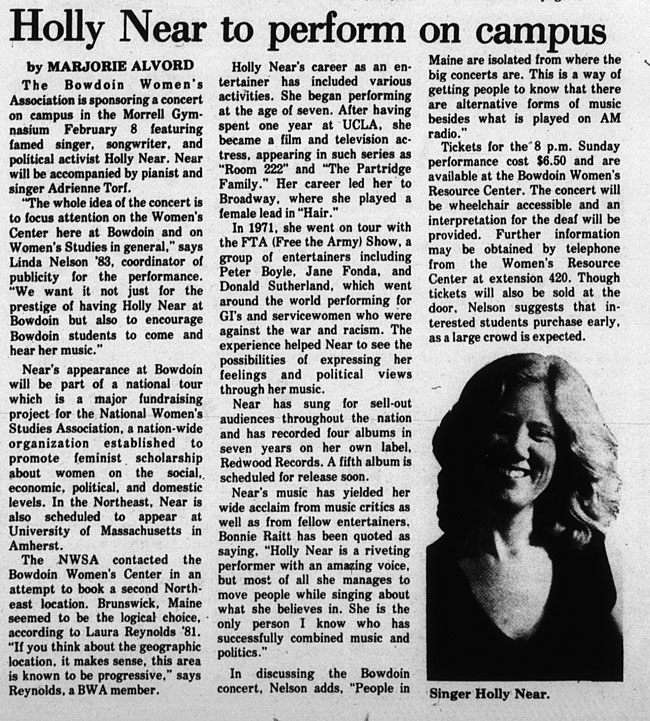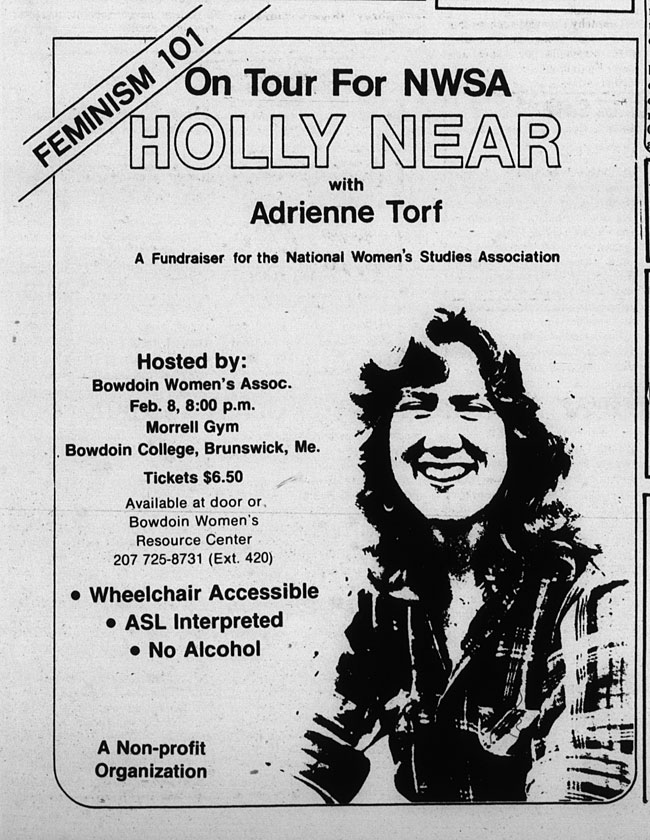In March 1981, the Bowdoin Women’s Association brought singer, activist, and out- lesbian Holly Near to perform on campus (Document CS, 65).
“In 1972, Holly Near was one of the first women to create an independent record company… Near’s vision was to promote and produce music by politically conscious artists from around the world… Often cited as one of the founders of the “women’s music” movement, Holly not only led the way for outspoken women into the music world, but also worked for peace and multicultural consciousness.” ( http://www.hollynear.com/bio.html)
This concert provided an opportunity for women to come together, enjoy music and claim their space in the world and at Bowdoin. At this point, Bowdoin women officially had claimed Women’s Resource Center and were continuing to create more spaces for themselves on campus.
The women active in the Bowdoin Women’s Association and at the Women’s Resource Center were politically conscious, many of them were lesbians, and they fought for women’s rights at Bowdoin. Bringing Holly Near to campus was a way of claiming space, breaking down barriers, and demonstrating the strength on the feminist community.
Working with larger women’s organizations, such as the National Organization of Women, Bowdoin women were able to bring Holly Near to campus and to create a larger community and support network for themselves. Provision of sign language interpretation and wheelchair accessibility suggests that the organizers envisioned a truly inclusive community at the college.
Today numerous avenues exist through which to secure money to bring performers and lecturers to campus. A few years ago, Eve Ensler, author of The Vagina Monologues came to Bowdoin, and this fall singer and activist, Angelique Kidjo, brought to campus a vision of peace and justice through music. Guest performances continue to raise awareness and create new conversations around women’s issues at the college.

